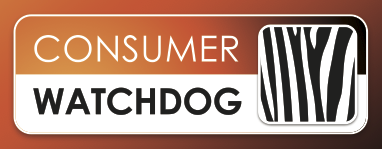Firstly I should say that I welcome criticism. I genuinely like it when readers get in touch either to say they like something I wrote or even to say that they didn’t. So long as they’re fairly polite I’m happy to read anything they say. Of course when they disagree with me it’s obvious that I’m right and they’re wrong but that’s their right.
A complaint last week arose from my comments about a certain “Pastor Thuso” who advertised that at his forthcoming “Easter Convention” “the sick will be healed”. That’s quite a promise.
It’s also, I believe, quite an extraordinary advertisement. Advertisements for the treatment and cure of various medical conditions are forbidden by Sections 396 to 399 of the Penal Code. Anyone who advertises in the papers, in the radio or “by any other method whatsoever” a cure for "genito-urinary diseases in any of their forms", cancer, diabetes, epilepsy, heart disease, blindness, TB and a host of other problems is breaking the law.
One reader wasn’t happy about this. He got in touch to suggest that the promises of cures made by preachers on religious grounds are somehow above the law and that preachers should be free to promise whatever they like, so long as it’s biblical. He did concede though that we should test such claims as they are made. I disagree. I don’t think we should test a claim made by a preacher that he can cure AIDS if it means that someone with AIDS stops taking their ARVs and prays instead. I don’t think we should allow people to dissuade our family, friends and neighbours from doing what we know will help them. Not without evidence.
I think we should do our best as a community to stop people undermining all the good that’s been done in the fight against HIV and AIDS. The same goes for TB, cancer, heart disease and all the other problems challenging our national health.
I was also criticised for something I said about “alternative medicine”. On one of our blogs I reported a story from CNN entitled “Ginkgo biloba doesn't work”. Ginkgo biloba is a tree whose leaves are believed by some to offer an extract that helps with a range of mental problems such as dementia and memory loss. Unfortunately it simply doesn’t work. Yes, there have been studies that suggest it does work but they tend to be funded by, yes, you’ve guessed it, the companies that sell ginkgo biloba products. Impartial studies have shown absolutely no effect whatsoever.
There lies an irony. One of the main arguments from the alternative medicine community is that big pharmaceutical companies are conspiring to suppress alternative or complementary health products. But can you guess who actually produces most of the alternative health products available? Yes, the big pharma companies themselves. They make double profits by selling both “normal” medicines (they’re the ones that work) and the alternatives (that don’t). Either way they win.
Is it unfair for me to say that alternative medicine doesn’t work? No. Here’s why. If an “alternative” medicine is tested and is found to work it stops being “alternative” and becomes just “medicine”.
Medicine is the stuff that works, alternative stuff doesn’t, by definition. If it works there’ll be evidence.
How would you feel if a large company wrote you a letter and accused you of being a criminal? (OK, for a moment, just pretend you’re innocent, ok?) I think you’d have a right to feel offended.
I was. Very.
Last week we got an email from Microsoft saying:
“Microsoft is randomly reviewing the licensing position of all our customers on a regular basis. Verifying your software position is therefore the first process with this initiative.”Attached to the email was a letter from Microsoft in Namibia explaining how they are doing their best to combat software piracy. It included this:
“Our records suggest that while you have purchased licences of various Microsoft products in the past, there is a possibility that there exists a gap between the actual number of PC’s in your organisation vs. the number of Microsoft Office Suite licences and Client Access Licences for our server products.”It then asked us to complete a list of all the PCs (yes, Microsoft, a plural doesn’t have an apostrophe) we own and what Microsoft licences we’re using on each.
Get stuffed.
For the record neither Consumer Watchdog nor it’s parent company use pirated software. We have a licence for every piece of Microsoft software we use. Which we paid for with real money. Our own. Their statement that their records suggest something to the contrary is without evidence.
One irony of this situation is that a couple of years ago we were approached by Microsoft’s own anti-piracy division to conduct a survey for them on the use of software in internet cafes. We were also the organisation who told Microsoft about certain stores that were selling pirated versions of their software. We’re the ones who sent them the recordings of the phone conversations we had with the crooks when they offered us pirated versions of all sorts of software. We’re the ones who sent undercover mystery shoppers into the stores at Microsoft’s specific request.
The double irony is that although I use an Apple laptop (like all the best-looking, charming and charismatic people) which doesn’t run Windows I nevertheless use Microsoft Office on the Mac. I firmly believe that Office for the Mac is better than Office for Windows. I’m a big fan of some Microsoft products.
So why would they go out of their way to insult us? Without evidence?
Update: they apologised. They said:
"Dear Mr. Harriman,
I am, very regretfully, in receipt of your response to our attached letter.
On behalf of Microsoft I wish to offer my sincere and unreserved apologies for any insinuation that Consumer Watchdog or Business & Enterprise Solutions Botswana (Pty) are involved in any piracy of Microsoft products. The correspondence sent to you (among about 8000 consumers in Africa) is based on an international database that uses certain key indicators to raise a query letter, and is in about 1% of the cases not correct.
Again please accept my apology and thank you for the support that we have received from your organization to combat piracy in Botswana."



No comments:
Post a Comment